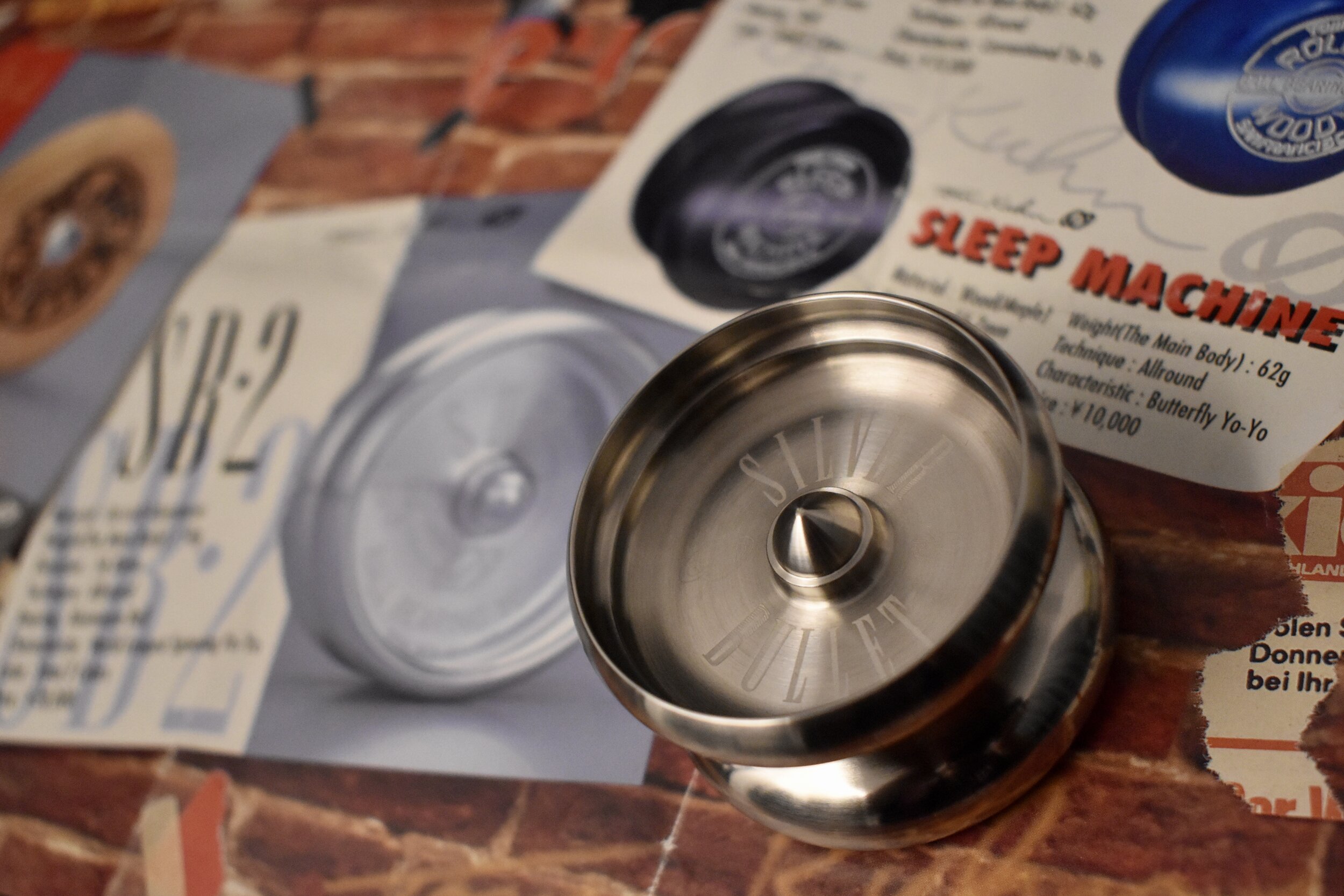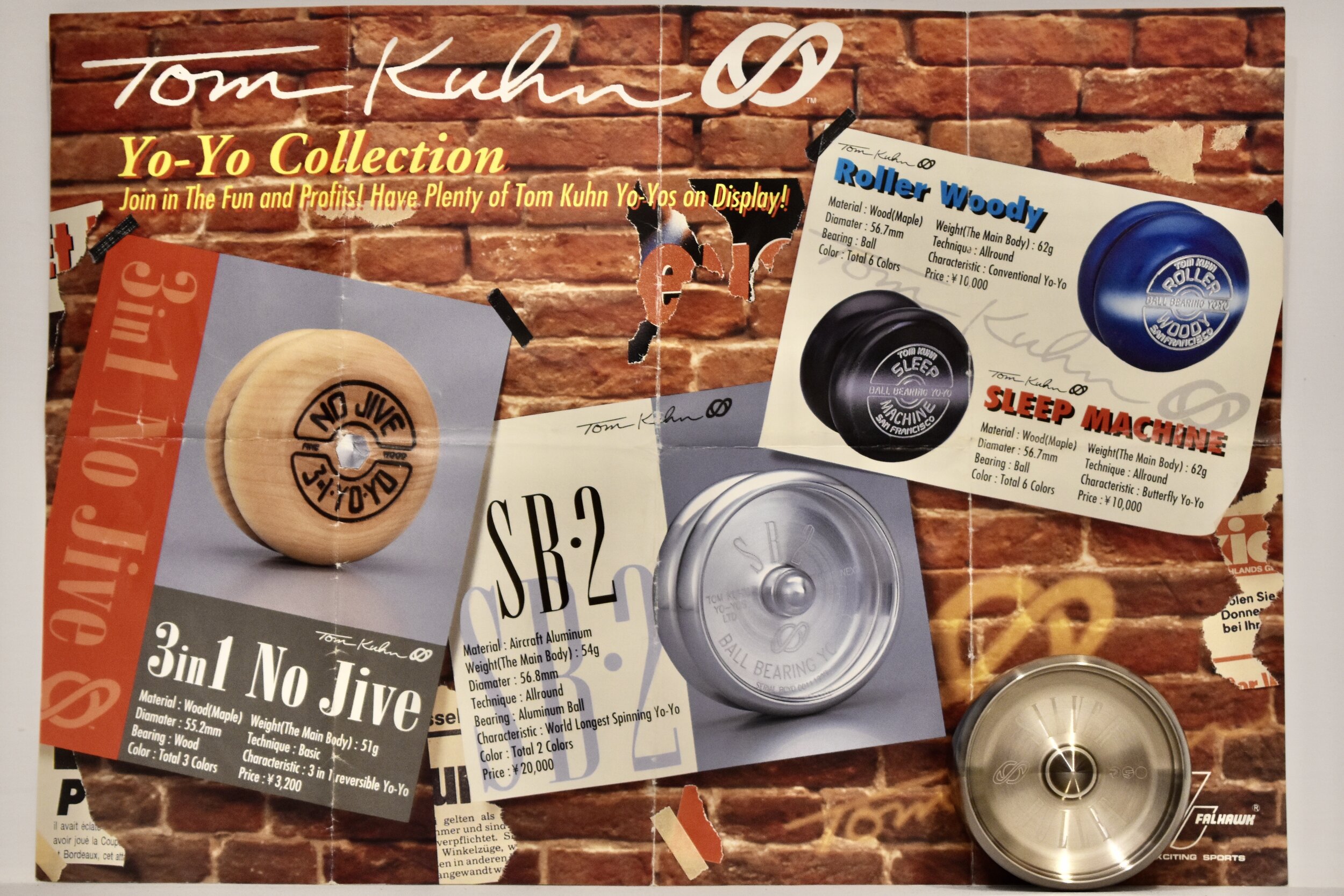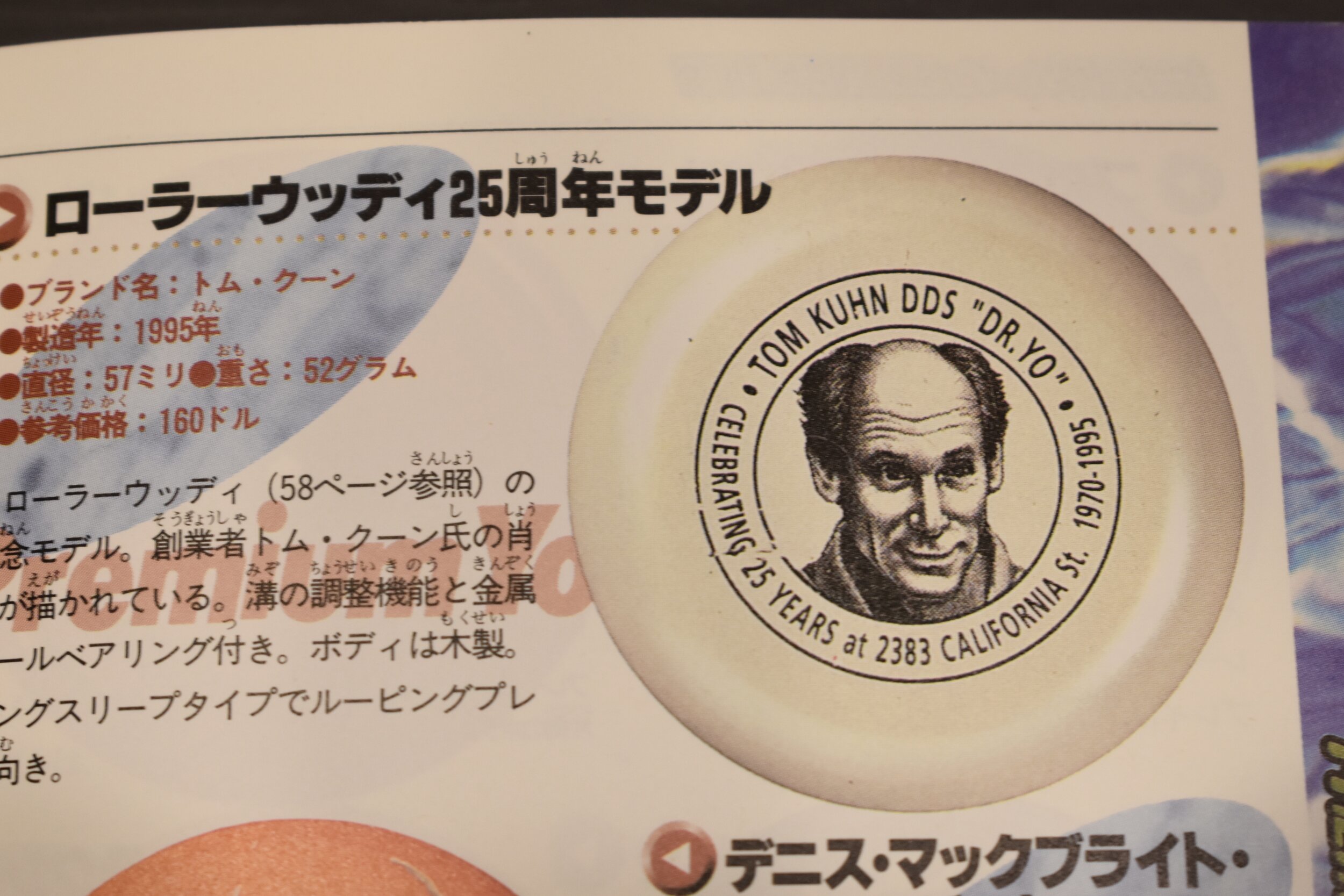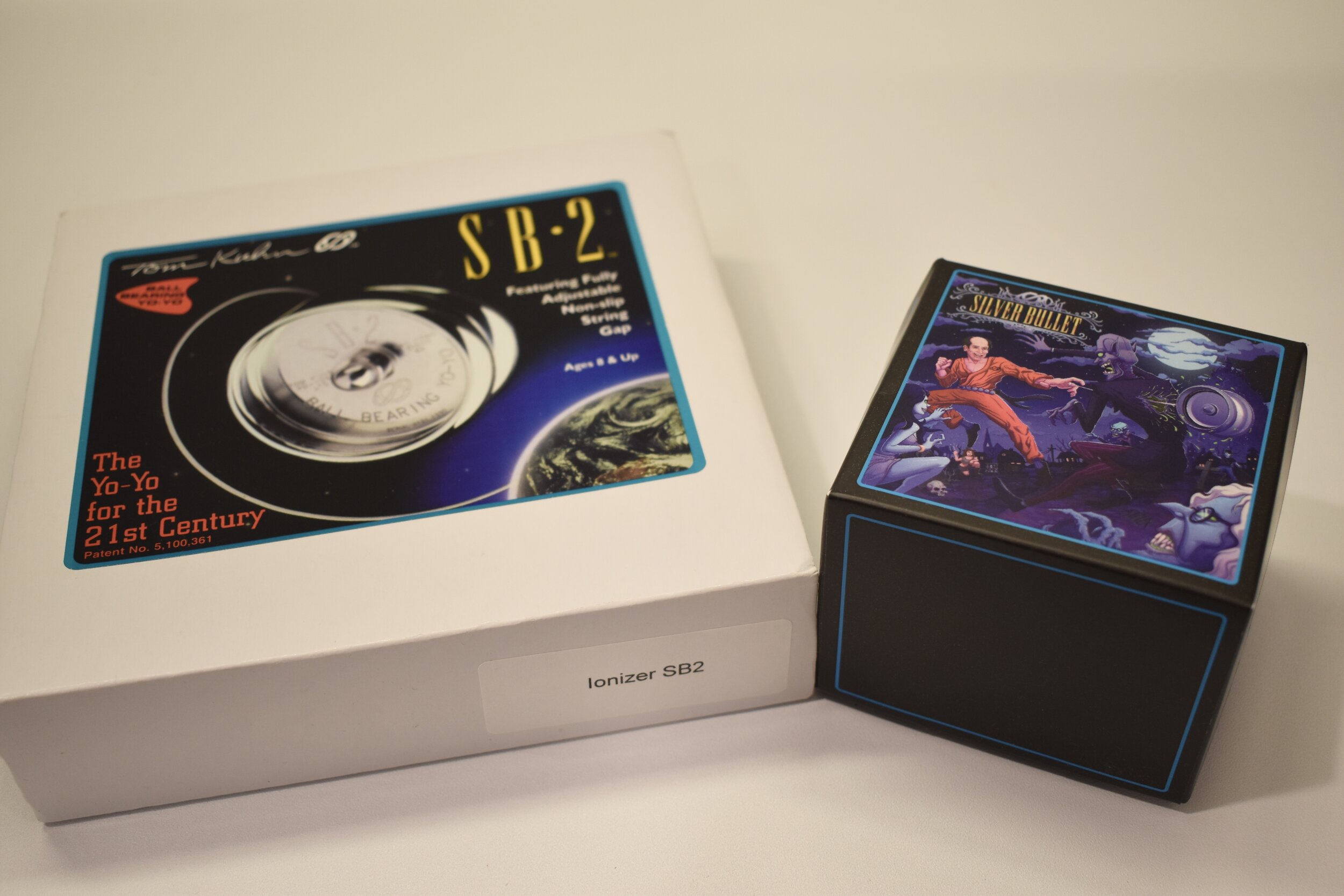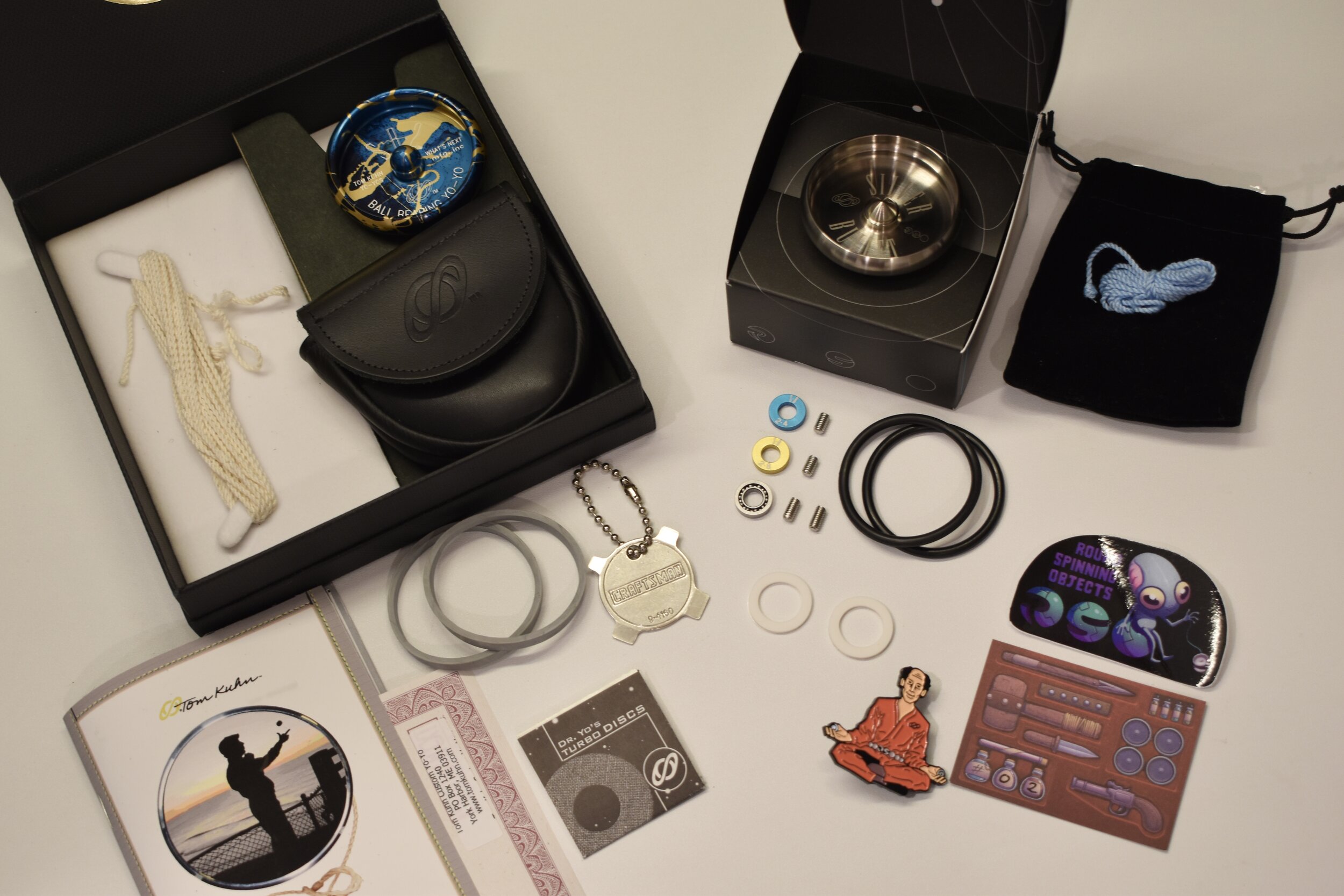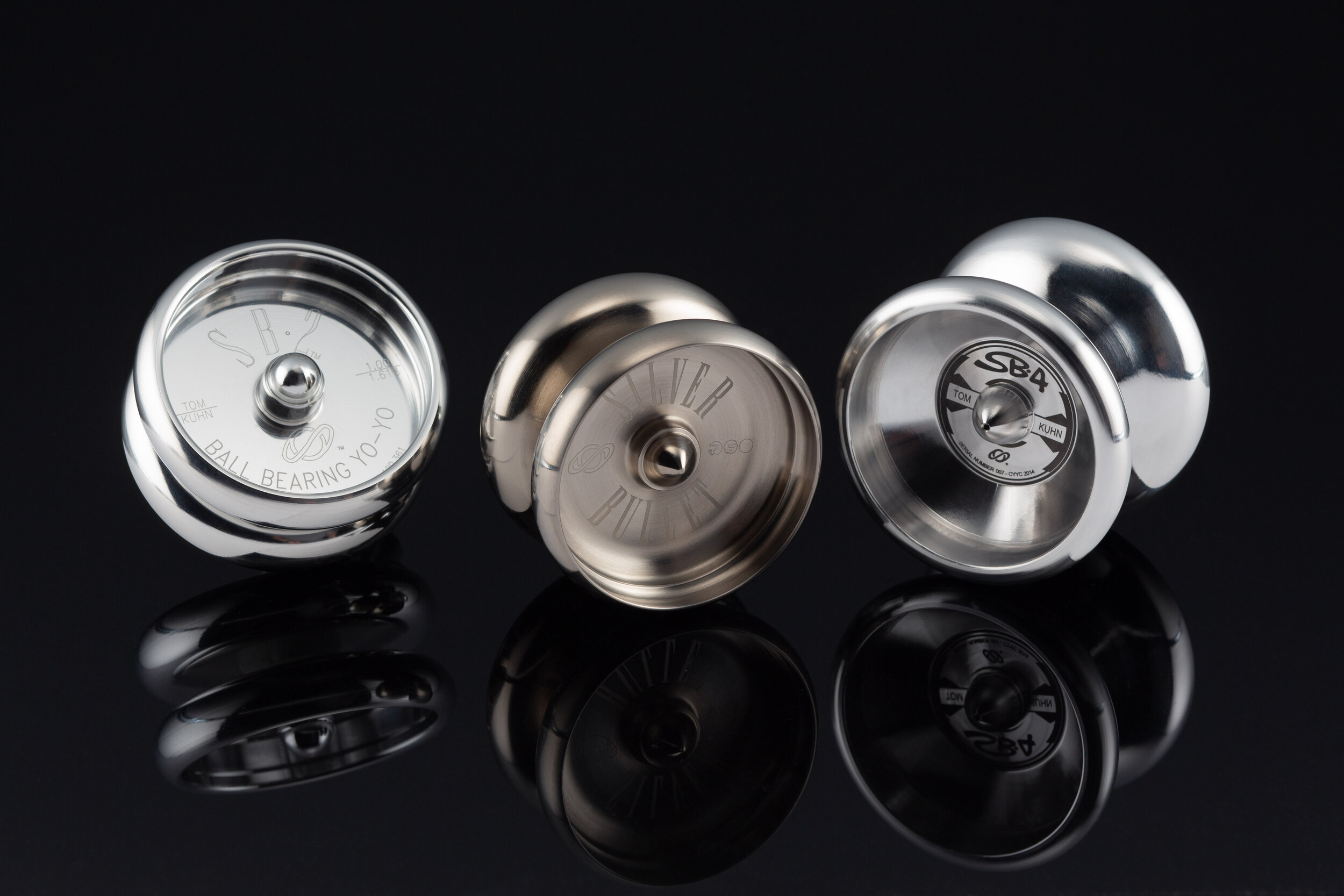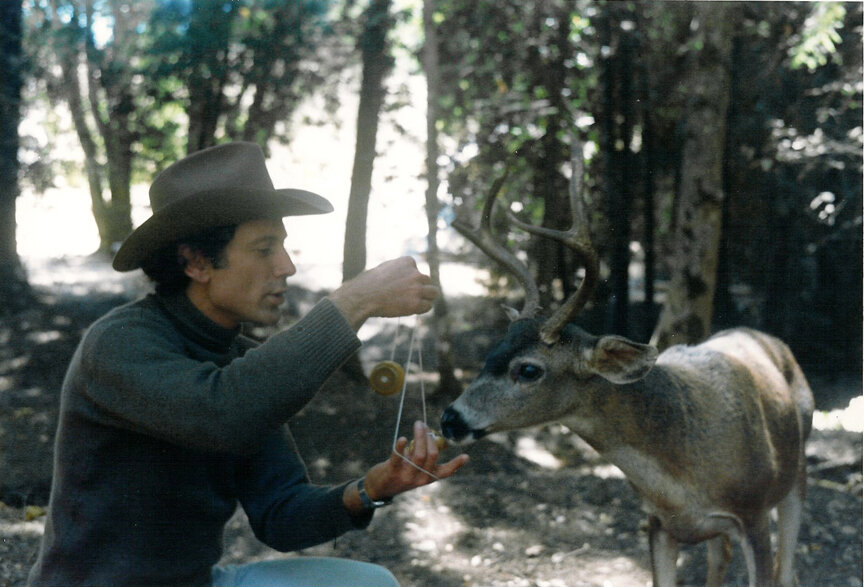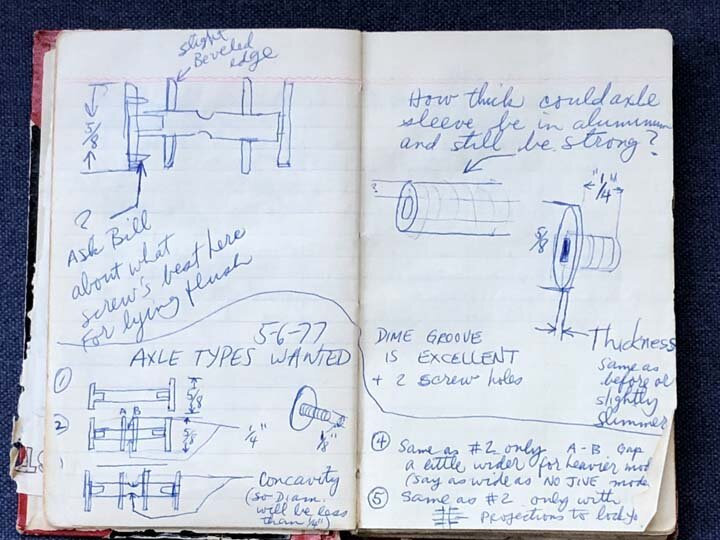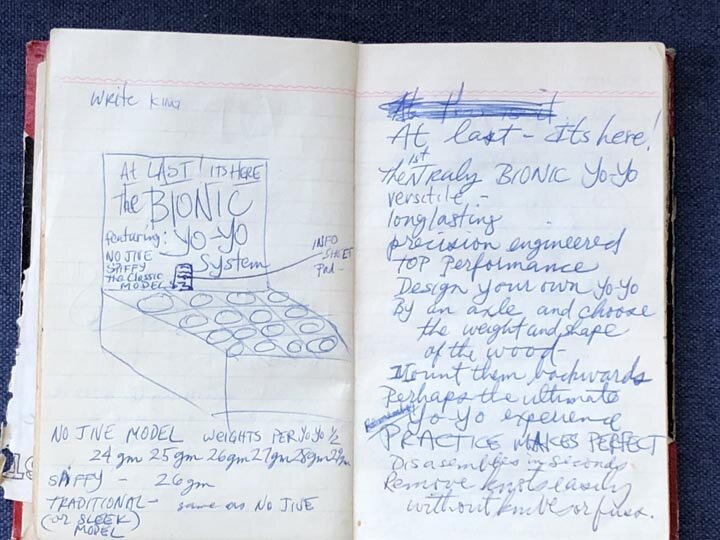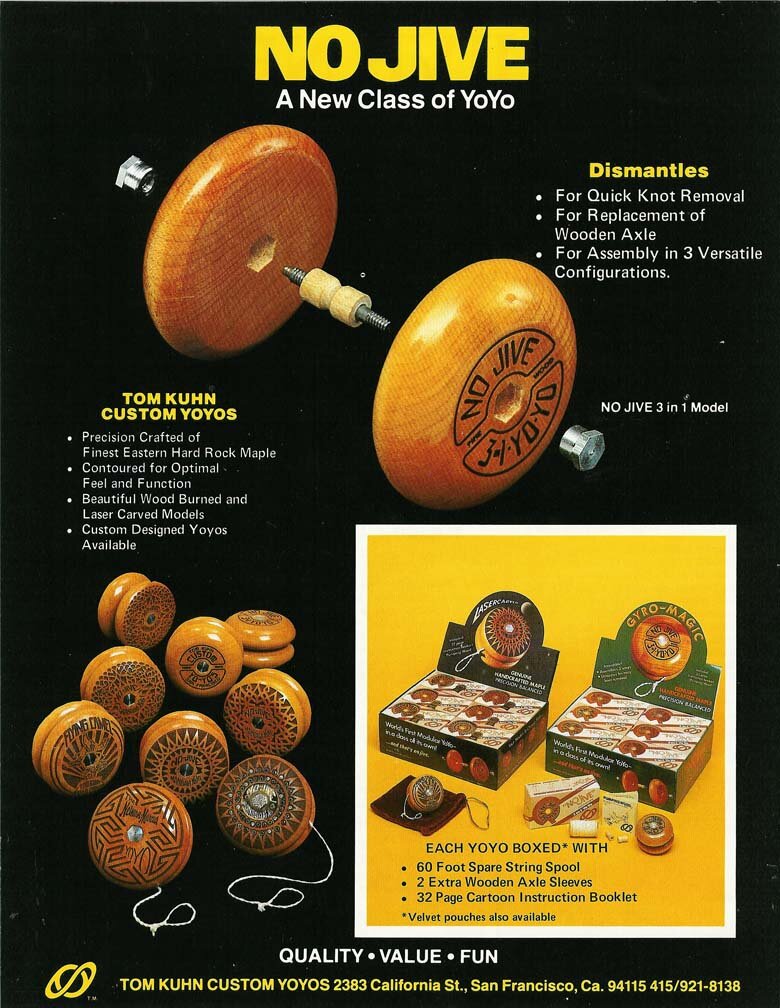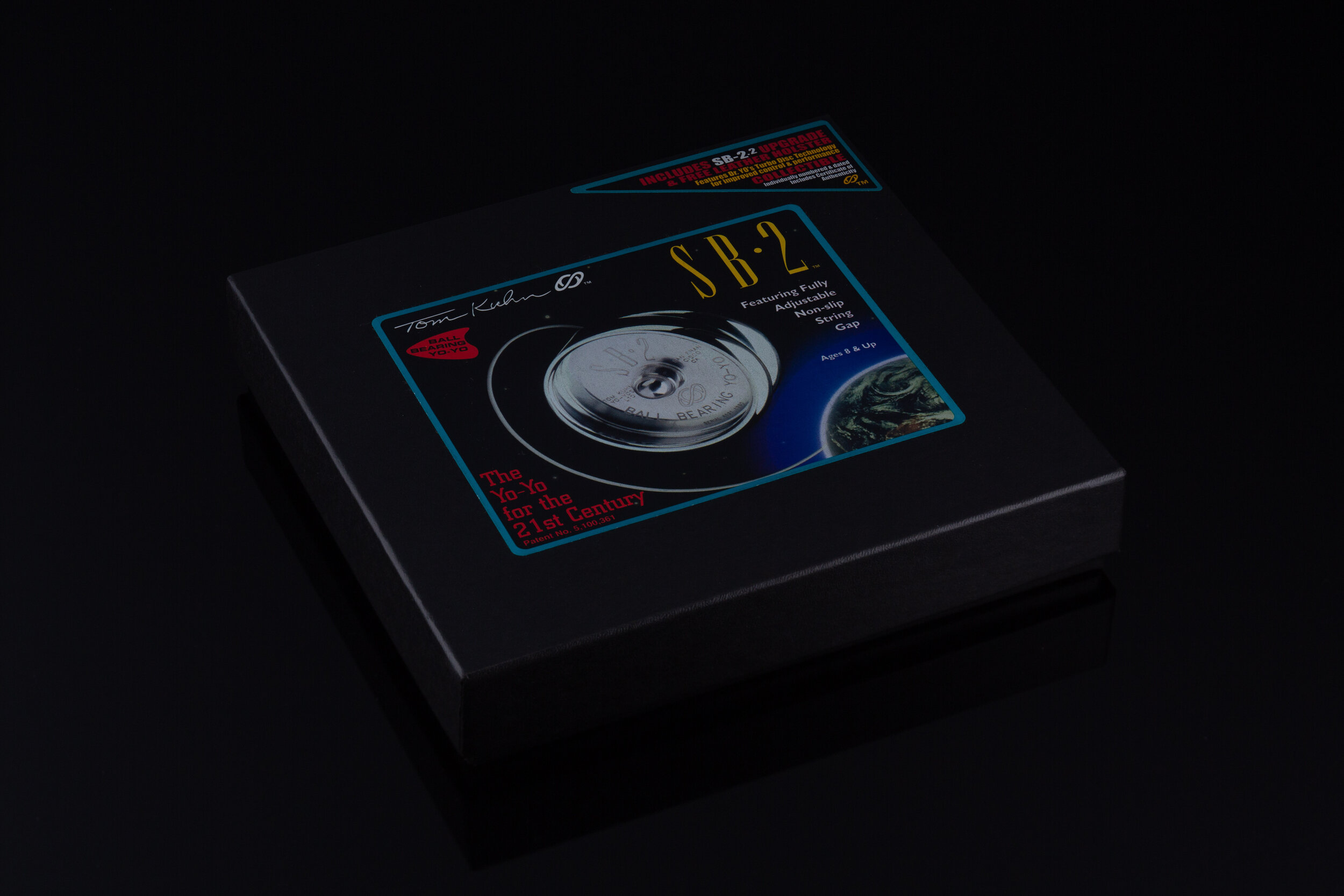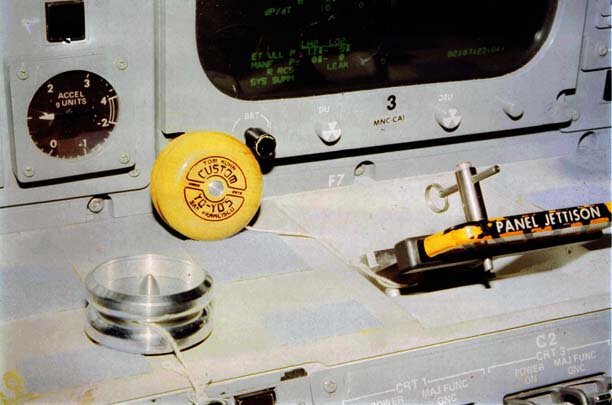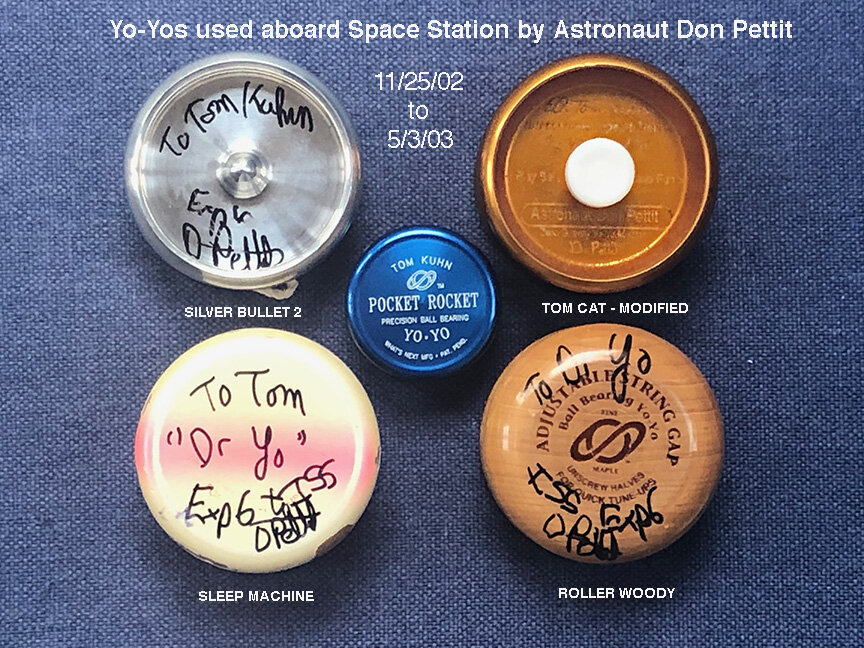RELEASE INFORMATION
Release date 15 AUGUST 2020
Sold DIRECT (VIA RSO AND TOM KUHN) AND VIA YOYOEXPERT, SPINGEAR
Retail 365 USD
RAW TITANIUM
72 MADE
Diameter 54mm
ADJUSTABLE GAP AND WEIGHT
STANDARD CONCAVE SIZE C BEARING, HALF SPEC BEARING OR BEARING BLANKS
CLYW SLIM / G-GRIP SIZE TYPE 50 LANDING PADS RESPONSE
A MESSAGE FROM ELVIN
When I started my yo-yo journey back in 1999, The Silver Bullet 2 (SB-2) was one of the first yo-yos to kickstart my collection. This nostalgic throw conjures memories of my 12-year-old self standing in front of a yo-yo display at the Takashimaya department store while begging my parents to buy it for me. With its eye-catching mirror polish combined with the intriguing space theme, it was easily the coolest yo-yo in the display case. After wearing my parents down with my perseverance, they eventually relented.
Step into the hot-tub time machine and fast forward more than two decades; my passion for throwing has grown into Round Spinning Objects (RSO). The history behind classic models from yesteryear has always immensely appealed to me. The SB-2 is indisputably one of the most iconic yo-yos ever created - it had many innovations that were ahead of its time. Re-imagining the SB-2 was high on the RSO to-do list. Although its design has slightly weathered the test of time after the popularization of unresponsive play, there remains a great deal of untapped potential in bringing a modern twist to this founding-father classic.
I initially approached Dr Tom Kuhn and Mr Brad Countryman in April 2020, two avant-garde legends who played a significant role in shaping the yo-yo scene into what it is today. Fortunately, they agreed to listen to my pitch. Through a series of email communiqués and video calls, I had the rare opportunity to share my concepts of a titanium Silver Bullet (SB-Ti). The rest is history.
It is an absolute honor to work with the Tom Kuhn brand. I want to extend a massive thank-you to Tom and Brad for the opportunity to collaborate on the SB-Ti. So get ready to step back in time when Tom Kuhn started through the production of the modern SB-Ti.
Content by Tom and Me.
Rewind to the year 1955. A 12-year-old Tom Kuhn lived across the street from the playground of Pasteur Elementary School in Detroit, Michigan. Bob Rule, a Duncan yo-yo professional, decked in a red blazer and throwing a yo-yo, announced a contest. Eager to participate, Tom bought his first wooden Duncan yo-yo for 35 cents and practiced 10 basic tricks intensely. The following week, he won the competition and celebrated by throwing a Spinner with his prized wooden Duncan Jeweled yo-yo, as the audience admired how it sparkled under the afternoon sunlight.
Years later, Tom enrolled in the University of Detroit Dental School and graduated at the top of his class in 1967. On July 20th, 1969 (the exact day of Lunar Landing), he relocated to San Francisco to start up his own dental practice. Time flew by quickly, and he is celebrating the 50th year of his dentistry practice in San Francisco this year!
THE STATE OF YO
Tom started the Tom Kuhn brand in 1975 because he felt that the world of yo-yo was over-saturated with plastic yo-yos, all lacking the aesthetic and “soul” of the wooden yo-yos he loved as a child. In 1976, with the help of woodcarver artisan Bill Horgos, a few yo-yos were initially crafted out of different types of wood, including maple. Elated with the end result and play characteristics, Tom felt like he was transported to a mental state he affectionately termed “The State of Yo.”
Victor Lauteri, a master Italian woodturner, taught him how to construct a “one-piece” maple yo-yo. While testing the yo-yos at home, a local newspaper boy came by and asked him, “No jive, you made that?”. This question became the inspiration for the name of Tom Kuhn’s very first model, the “No Jive Maple Leaf”. He designed a wood-burning die and subsequently made a 20 piece run of the No Jive Maple Leaf in 1976, handed out as holiday gifts.
TAKE APART DESIGN
A sketch of axle mechanisms before meeting a machinist.
A sketch of a yo-yo display box.
The No Jive Maple Leaf had one major drawback – it had “one-piece” design. The entire yo-yo, including the axle, was made out of a continuous block of wood that rendered the axle prone to breakage during play. Axle configurations made out of brass, aluminum, and steel were initially substituted to solve this problem. Tom even went the extra mile and made a trip to NASA and met with Dr Walter Goldenrath, a technology scientist and research director, who proposed advanced aerospace materials to construct more prototypes. These metal axle prototypes unfortunately, did not play any better than the No Jive Maple Leaf. It became clear that a replaceable wooden axle was needed.
NO JIVE 3-IN-1
Tom returned to Victor Lauteri, who transformed his concept of a “No Jive 3-in-1” yo-yo into a reality. The 3-in-1 design was a breakthrough innovation at that time, consisting of a replaceable wooden axle reinforced with a steel screw. This allowed the yo-yo to come apart and be reassembled in three different shapes (classic, butterfly, pagoda) to be optimized for various tricks.
First catalog sheet for No Jive yo-yos.
A later catalog showing display boxes and other models.
Fast forward one year. With the assistance of Frank King and Ed Allman of King Wood Turning in Los Angeles, the No Jive 3-in-1 Yo-Yo, the Flying Camel, and Mandala Laser-carved versions were mass-produced and released. The engineering behind these yo-yos was unique and therefore patented.
In 1979, in San Francisco just off Pier 39, a supersized No Jive 3-in-1 yo-yo made by Haas Wood Turning was launched. It was called the “The Big Yo” as it weighed 256 lb and was 50 inches high. The Big Yo’s fame made it into the Guinness Book of World Records as the World’s Largest Yo-Yo! The yo-yo currently resides on display in the National Yo-Yo Museum in Chico, CA.
JOURNEY INTO SPACE
The buzz generated from the No Jive series caught the attention of Astronaut David Griggs. Consequently, the No Jive 3-in-1 yo-yos moved from being an earthly toy into one being considered for NASA’s Toys in Space program. The yo-yo was among eleven toys brought onboard the Space Shuttle for the inaugural Toys in Space program in 1985.
Sharing an affection for yo-yos, Tom linked up with Don Pettit who worked as a research engineer at the Los Alamos National Laboratory in New Mexico. Don was a frequent flier on the zero-gravity KC-135 airplane, flying parabolic trajectories where he ran physics tests using Tom Kuhn yo-yos in a simulated weightless environment. This plane was affectionately called the “Vomit Comet” because it could easily create a stomach upset. Don went on to become an astronaut who has spent 370 days in space so far!
Tom Kuhn teaching astronaut David Griggs yo-yo tricks for an upcoming flight that included a Toys in Space program, 1985.
David Griggs throwing a yo-yo onboard a Space Shuttle, 1985.
SILVER BULLET
The first version of the Silver Bullet (SB-1) in 1984 featured an aircraft-grade aluminum body with a replaceable wooden axle. A year later, Tom met Tommy and Dickie Smothers of the legendary musical comedy team “The Smothers Brothers.” Some may remember Tommy Smothers as the “Yo-Yo Man”. Tom Kuhn performed on national TV with them on a couple of occasions using the SB-1.
Smothers Brothers Comedy Hour, 1985.
From left to right. Tommy Smothers, Tom Kuhn, Dale Myreberg at a "YO-Down".
In 1989, the predecessor leading to the SB-2, the “Turbo-Yo”, was released. This run of 39 aluminum yo-yos was an enormous step for yo-yo design with many innovations, including an adjustable gap, miniature bearing, and rubber weight rings. These opened up infinite new trick possibilities. The Turbo-Yo was eventually released as the Silver Bullet 2 (SB-2).
SILVER BULLET 2
Moving forward to 1990. After seeing the nationally televised Smothers Brothers Comedy Hour, engineer Don Watson reached out to Tom with some ideas which led to the birth of the SB-2. While the SB-2 possessed the same internal mechanics as the Turbo-Yo, it had significant variation in aesthetics. The SB-2 had a diameter of 57 mm, width of 29.7 mm and weighed in at 50g.
The biggest feature on the SB-2 was its patented string gap adjustment mechanism. The string gap could be changed by varying the depth of adjustable screws that sat in the axle holes of each half. The depth of the adjustable screw was altered using a special tool which looked like a key. If you misplaced this tool, a simple paper clip could do the trick!
In 1999, the response system was upgraded to use Turbo Disc response pads, which earned the yo-yo the nickname SB-2.2. These new white linen response pads eliminated the need to double-loop the string around the SB-2’s bearing, while improving the reliability and predictability of the yo-yo’s response.
Fun fact: At the 1991 CA Yo-Yo Championship, the SB-2 clocked a rim speed of 100 mph (with a spin rate of 14,300 revolutions per minute) on a digital tachometer.
TO INFINITY AND BEYOND
In 1992, the SB-2 was taken aboard the Space Shuttle Atlantis flight STS-46 by astronaut Jeffrey Hoffman to demonstrate the physics of yo-yos in space. The SB-2 went “around the world” 127 times for a total of 3,321,007 miles!
Silver Bullet and No Jive in a Space Shuttle simulator.
Jeffrey Hoffman with an SB-2 aboard Space Shuttle Atlantis on Mission STS-46, 1992.
On the Expedition 6, the 6th mission to the International Space Station (ISS) on the Space Shuttle Atlantis, astronaut Don Pettit took five Tom Kuhn yo-yos (including the SB-2) with him to perform tricks in space. These yo-yos remained on the ISS for another two and one-half years. Don calculated that as a result of all that time in space, Tom’s yo-yos traveled about 430 million miles orbiting the Earth!
A sketch of Tom Kuhn in a space suit from the SB-2 flight manual.
Don Pettit (with yo-yo) and Ken Bowersox on ISS Expedition 6. He took 5 Tom Kuhn yo-yos with him and returned them autographed.
In 1995, Brad joined Tom as a partner, and took over production. Brad had been making some yo-yos for Tom Kuhn as far back as the late 1980s.
Tom Kuhn and Brad Countryman, 2004.
TITANIUM SILVER BULLET
The titanium SB-Ti design concept was simple: to make a slimline yo-yo that is primarily suited for unresponsive play, but can play semi-responsive or responsive. Yo-yos that play semi-responsive have been gaining traction in recent years, with models like the One Drop Deepstate, Luftverk Daytona, CoreCo Alley Cat, and Spencer Berry Theodore. Input in the design came from the folks at Tom Kuhn and grandmaster Andre Boulay of YoYoExpert / Yoyojam fame.
Silver Bullet 2
Silver Bullet 4
The Silver Bullet’s signature bullet-shaped nipple was the most important part of the aesthetic of the original series and required a tremendous amount of time to perfect and fine tune on the SB-Ti. Due to the higher density of titanium compared to aluminum, it was not possible to recreate the same tall nipple as the SB-2 as it would result in too massive center weight. The SB-Ti also created an opportunity to give the SB-2 nipple more of a modern makeover. The modernized version of the nipple on the SB-Ti gets its inspiration from both the SB-2 and the SB-4.
The SB-2 font is used for the engraving on the SB-Ti as a homage to the SB-2. Did you know the original SB-2 had only one half engraved?
UNRESPONSIVE, SEMI-RESPONSIVE AND RESPONSIVE
The primary playing style of the SB-Ti is the popular modern and unresponsive play. Without question, we all felt that the gap and width had to be increased from the SB-2 to allow for more string wrapping and layering while improving stability on a narrower profile vehicle. The high vertical walls of the SB-2 were modified into that with an up-slope from the response area to the rim on the SB-Ti. The rounded rims on the SB-Ti are reminiscent of the character trait on the SB-2 which feels comfortable in the hands. The SB-Ti is 54mm in diameter and sports a width of 34 mm with the regular C sized bearing installed.
Overall weight (and distribution) was the other area we focused on. The first SB-Ti prototype weighed in at 64.2g, which was too heavy for semi-responsive play, even though it was a respectable weight for unresponsive play. We worked day and night to find a sweet spot for a yo-yo that could play well regardless of playing style. Both the Deepstate and Alley Cat weighed in at the 51-53g range and were excellent semi-responsive yo-yos, but we ultimately felt that the weight range was too light for unresponsive play. The Luftverk Daytona also felt slightly heavier on the string at 62.5g for a 54 mm diameter yo-yo. The SB-Ti weighs 61g, and what a difference 1.5 grams can make!
From left to right. Spencer Berry Walter, RSO x Tom Kuhn SB-Ti, Luftverk Daytona, One Drop Deepstate.
ADJUSTABLE GAP
The gap adjustment system on the SB-2 could not be implemented on the SB-Ti for one key reason – because titanium yo-yos are extremely difficult to machine and make vibe-free… especially with the inclusion of additional components. I experienced this first hand with my upcoming bimetal project (which I can’t wait to tell you about!). Adding an adjustable screw in the axle hole (akin to the SB-2) to the SB-Ti, at the heart of the yo-yo, would cause unimaginable tolerance and vibe problems.
So how did we get around this issue? I’m glad you asked! The bearing seat was designed to allowed bearings of different thicknesses to fit. The immensely popular Luftverk Alpina came with a bearing blank, which had the same thickness as a half spec bearing, but we went even further and machined an additional thinner bearing blank to narrow the gap. These bearing blanks are custom machined and anodized to increase durability and aesthetics. We even engraved them so you can easily tell them apart!
The table below demonstrates how you can customize your SB-Ti for the different playing styles by swapping the included bearings and axles that accompany your SB-Ti package:
Out of the box, your SB-Ti has an 8mm axle and regular C bearing installed and plays unresponsive.
The half spec bearing comes with thick lube, allowing for semi-responsive play. Cleaning this bearing will cause your SB-Ti to play unresponsive.
To enable your SB-Ti play responsive, double loop the string around the 2.8 or 2.4 bearing blanks.
The half-spec bearing and bearing blanks are intentionally made not to fit too tightly on the bearing seat of your SB-Ti. This was done because these bearings are thinner than the standard C-bearing, and it would be more challenging to remove them if they were seated snugly. Using a bearing remover is highly suggested. As a result of the slightly looser fit, your SB-Ti will play with a minimal amount vibe on the string with these bearings installed.
Using a correct bearing / axle combination is crucial. A wrong combination will damage your SB-Ti. Check the axle length carefully before installation. We do not recommend changing the bearing / axle combination too frequently, as this may result in extra wear of the axle threads and bearing seat.
ADJUSTABLE WEIGHT
Like the SB-2, the SB-Ti comes with two black rubber weight rings that fit snugly in the yo-yo. Each ring weighs 1.8g, allowing the SB-Ti to go up to 64.6g, with a regular C bearing. These rubber weight rings are made with such high manufacturing precision that they introduce almost no vibe to the SB-Ti when installed.
RESPONSE SYSTEM
The SB-2 came with Turbo Discs installed - these white linen response pads were thinner and had a wider ring diameter than the ubiquitous 19mm pads. This was in part due to the miniature bearing in the SB-2. As a fitting tribute, the SB-Ti was designed to use RSO’s proprietary white CLYW slim / GSQUARED sized Type 50 Landing Pads closely resembling the Turbo Discs. In comparison to regular CLYW Snow Tires, these Landing Pads are thinner and allow the yo-yo body around the response to be machined much thinner, which was important for the SB-Ti due to the concentration of weight at the nipple. Make sure you stock up on these Landing Pads for the SB-Ti. It must be emphasized that regular CLYW Snow Tires do NOT fit the SB-Ti as they are thicker than the included Landing Pads.
Comparison between Turbo Discs (top, for the SB-2) and CLYW Slim / GSQUARED sized Type 50 Landing Pads (below, for the SB-Ti).
WHAT’S IN THE BOX
Certificate of authenticity IN THE FORM OF A vAMPIRE KILLING KIT
MEDITATING TOM KUHN ENAMEL PIN
A PAIR OF RUBBER WEIGHT RINGS
ONE HALF SPEC BEARING
ONE GOLD AND ONE BLUE BEARING BLANK
TWO 7MM AXLES AND TWO 8MM AXLES, IN ADDITION TO THE 8MM AXLE ALREADY INSTALLED
A PAIR OF CLYW SLIM SIZE / G2 G-GRIP SIZE LANDING PADS
BLUE STRING
ART BY ATILA
The term “Silver Bullet” has a dual meaning. Besides its literal meaning of a bullet made from precious metal, it is a slang term for an instant problem solver. Care to guess which one we went for? We decided to have more fun with the artwork this time, featuring Dr Tom Kuhn himself in his signature taekwondo get-up using the Silver Bullet on a vampire. The certificate for the SB-Ti comes as a form in your very own vampire killing kit.
The color scheme we chose on the box is also a throwback tribute to the classic SB-2 packaging – an all-black box complete with turquoise borders and yellow logo.
STORY FROM A COLLECTOR
The Silver Bullet is a yo-yo that transcends cultural boundaries. One of RSO’s top collectors, Shimon Osada from Japan, shared a story about the Silver Bullet, which resonated with me, and probably many others who started throwing during the yo-yo boom in the late 1990s. I am sharing his story here:
I started yo-yo’ing when I was in elementary school. During the winter of 1998, I bought the Hyper Yo-Yo catalog book and learned about the Tom Kuhn SB-2. I told myself that I would grab an SB-2 in the future. In the same year, during a huge Hyper Yo-Yo promotion event, I finally laid my eyes on the SB-2, but it was way beyond my budget. I settled on the Spintastics Tornado Terminator instead but struggled to make it sleep over 1 minute as advertised. I continued to crave for the SB-2. I made my mother promise me that she’ll get me an SB-2 if I pass my high school entrance exam (which was still 4 years away!) Years passed, and the yo-yo boom declined. I eventually passed the exam but didn’t get the SB-2 because I had gone on a yo-yo hiatus.
When I was in college and working as a part time student, I chanced upon a Hyper Yo-Yo card in my friend’s wallet (of Nakamura Meijin, a Japanese yo-yo player), which rekindled my interest in yo-yos. My first Tom Kuhn yo-yo was a No Jive. An SB-2 “Ionizer” edition soon followed. My most recent Tom Kuhn purchase was the SB-3 from Yo-Yo Store REWIND. The SB-Ti completes the collection.
Photos courtesy of Shimon Osada (@shimoff_2).
